|
We're hoping that the e-version of the book should be out in November, and the paper version (both hardback and paperback) a few weeks later. The link for pre-order is up on the Bloomsbury website, and on Amazon. The cover is beautiful: Over the next few weeks, I will post drawings to illustrate some of the things I talk about in the book. Hoping there'll be twelve before Christmas, so I can turn them into a calendar!
Edouard Forestié published one of Gouges’s first biographies, printed in her natal Montauban in 1901. He portrays her as a true ‘Cadette de Gasconne’ full of heart and enthusiasm, rather than an intelligent woman with a feminist agenda as Lacour had in a piece published just before Forestié’s book. A 'Cadet de Gascogne' was a usually poor but courageous soldier from the South West of France. Famous 'Cadets' are D'Artagnan and Cyrano de Bergerac. In his appendix, Forestié includes two letters written by Olympe’s grandson, Jean Hélie Hippolyte Aubry de Gouges 1798-1870. Born five years after his grandmother’s death, he spent his childhood in French Guyana, but came back to France where he worked as a cabinet maker. Forestié notes that his spelling is unorthodox, and puts it down to a foreign education. This could be a reference to the fact that metropolitan France started to reform and unify spelling in the nineteenth century – or it could be a polite way of saying that Aubry de Gouges didn’t have much of an education at all. The second letter, which is in answer to a query by Forestié’s father about his famous grandmother gives us some insight into what sort of standing she had with her family. What struck me is how it was her abolitionist work, rather than her feminist or other political writings that Aubry de Gouges found particularly objectionable. I paraphrase parts of the letter below: She was a stubborn woman, he says, who was the cause of her son (his father’s) unhappiness. In particular he blames her writings on slavery, claiming that his father should have burnt them rather than presented them to Bonaparte. No-one, he says, knew the secrets of the lives of Black people better than her: they were her obsession, and she did everything for them. Her 'political furies' led her to the scaffold and ruined her son's carreer. Aubry de Gouges offered to send more details of his grandmother’s life in his next letter. Unfortunately, he did shortly afterwards and this was his last letter.
The text of the letters is available here. Many thanks to Andrew Groom who came across the letters during his own genealogical research and shared them with me. My piece on Manon Roland is out in Aeon today, here.
As I am working on the final draft of the book, Liberty in their Names, which is to come out with Bloomsbury next year, I have to find news ways to procrastinate. So I made myself a book cover. Here it is.
Below is a short interview that I did with Ruth Hagengruber for the Center for History of Women Philosophers and Scientists at Paderborn. Louisa May Alcott's novel, Work: a Story of Experience, is a defence of women's quest for independence through work that seems to owe much to Mary Wollstonecraft's philosophy. One running theme of the novel is that poor women can achieve emancipation through work. Much work doesn't allow them to do so because it is drudgery for abusive employers. But the book features a number of virtuous people who make it part of their life work to help create better employment situations for women in need, women who want to escape forced marriage (as is the case with 15 year old Kitty) or women who forfeited family ties by entering in a relationship outside marriage and are now shunned by society (such as Rachel) The heroine of the novel, Christie Devon, declares to her aunt in the first line of the book that there is going to be 'a new declaration of independence', and that she is going to leave home, try out various lines of work and hopefully end up with a career. She wants to see the world and earn a living, but mostly, she wants to be free ('I do love luxury but I love independence more', says she when turning down a rich suitor she does not love). She tries various professions: maid, governess, actress, companion, seamstress, and at one point she is without work and destitute and considers suicide, but is rescued by a woman who is part of circle of people who help working women. By the end of the story, Christie has found a career: she has become a speaker and activist on behalf of working women. The women she helps are poor, but she believes that there is room for improvement in the condition of rich women too, and when a rich acquaintance comes to ask her how she might help, she tells her as much: rich women 'need help quite as much as the paupers, though in a very different way'. The task she gives Bella is to set up a beautiful and elegant salon in her brother's home, and there set a new fashion, one for common sense. She adds: " I don't ask you to be a De Stael and have a brilliant salon: I only want you to provide employment and pleasure for others like yourself who are now dying of frivolity or ennui." What's distinctive about Alcott's proposal is that the salon is designed primarily for the improvement of women. Like a traditional salon, it is hosted by a woman, and welcomes men and women of good society. But unlike traditional salons which are mostly for facilitating the exchange of ideas, literary, political or otherwise among men, this one is designed to encourage women to think about things other than dress and parties, and to embrace more 'old-fashioned' and 'commonsensical' ideals. This, according to Alcott is the sort of help rich women need, and it sounds very much like Wollstonecraft's quest for a slowly achieved revolution in manners.
The #Tradwife movement which emerged in the last couple of years on social medial should be in a position of power and scrutiny right now. Those women who claim to have embraced domesticity can revel in the self-isolatory measures imposed on most of us. They know how to stay at home, and they have made a career out of making their home a comfortable and happy place for others who live there. So, one might think, they are better off, right now, than those feminists who still abide by second wave feminism beliefs about the shackles of domesticity. If like Simone de Beauvoir, your home is just a place where you sleep, but that you prefer to work, eat, and play outside, then right now, you will not be in a good place. At least, that seems like the obvious inference to draw. "Suddenly “looking to the past” and doing things the #TradWife way doesn’t seem quite so crazy. I can happily care for & teach my child without complaint, cook a meal from scratch, minimise, economise and budget - AND I actually like spending time with my family. Born for this!" Last week I looked to the past at Manon Roland's productivity in prison to see if I can find something helpful for us in these trying times. Part of Manon Roland's success was her domestic training: she was able to make her cell comfortable for working in a few minutes, and then it required very little upkeep. But the point here, is that she knew how to spend very little time on domestic work so that she could have more time to herself for what was truly important: writing and studying! This seems pretty much like the opposite of the tradwife's philosophy. Manon did not clean to serve others, but to serve herself. Of course, there was no one else for her to serve while she was in prison: what if she'd been at home, still, with her husband and their daughter? One thing we do know about the Roland marriage, is that both parents were happy to spend time with their daughter, whether teaching her, playing with her, or just minding her while the other was busy. So it's unlikely that had she been in isolation as we are, in her home, with her family, that Manon Roland would have turned into a tradwife, and reveled in cleaning and cooking for the sake of making others comfortable. Manon found that her aptitude for home making came in handy when she was forcibly isolated in prison in the months prior to her death. While she did not enthuse that she was 'born for this!' she did say that her skills at making any space comfortable in a short time and being able to stay in a small enclosed space, from which she escaped through her reading and writing made that difficult period tolerable. What her skills helped her with, was not enjoying her prison cell, but making time and space to escape it through her work. So for her domestic work is not an end in itself, nor a subservient activity performed for the benefit of others only.
Manon Roland did not live through a pandemic. But she did spend several months in forced isolation, when she was arrested and sent to prison, first at l'Abbaye, then at Sainte Pelagie. Did her experience bear any resemblance to ours, who have to self-isolate at home while Covid19 weakens and hopefully goes away? Certainly there are many points in common: Fearing for her friends' lives – check: those of them who were not also in prison were running, and in fact many of them died. Fearing for her own – check: and quite rightly too, as she was guillotined after 5 months of prison. Having to stay away from her loved ones to protect them – check: the motive for her arrest was that she might give away the whereabouts of her husband and other Girondins, including her lover Buzot, so she had to make sure that she kept her contacts with them very discreet indeed. Being confined to a small indoor space, without all her work stuff – check: Though her first cell was fairly comfortable, she was moved somewhere smaller. And though she had some books sent to her, and was able to buy pens and papers, most of things were inaccessible under seals. Knowing the world around her was falling to pieces because its leaders were mad and not having a clear idea of when it would all be over – check: she saw the Terror as the death of the Revolution and did not think the republic would ever recover. How did Manon cope with isolation? Not being ill, and being completely isolated from anyone she may have had to care for or homeschool, such as her daughter, Eudora, she could use the time pretty much at her own discretion: I plan to use the leisure of my captivity by retracing my personal life from my earliest childhood until now. To go back thus, on every step of one's career is to live a second time. And what better is there to do in prison than to take one's existence elsewhere through a happy fiction or interesting memories? How did she manage to settle down to work in such circumstances? Manon tells us that her education, which mixed Plutarch with omelet making, and dancing lessons with Latin was an ideal way of preparing for a varied life, and especially useful for knowing how to make the best of a very unpleasant situation: This mixture of serious study, pleasant exercise and ordered domestic tasks, seasoned by mother's wisdom, rendered me fit for everything. This seemed to predict the vicissitudes of my fortune and helped me bear them. [...] I am nowhere out of place. So when she first arrived at l'Abbaye, her first prison, she immediately set about to organize herself, so that she would be comfortable and able to work: Up at noon, I examined how I would settle in my new home. I covered a small and mean table with a white cloth and placed it under the window, intending to use it as a desk, resolved to eat at the corner of the hearth in order to keep my work space clean and tidy. But before you ask yourself how you could be more like Manon, and make your quarantine more productive and tidier at the same time, remember that Manon died at the guillotine. Don't be like Manon. Stay safe.
|
About
This is where I live blog about my new book project, an intellectual biography of three French Revolutionary women philosophers. Categories
All
Archives
November 2022
|
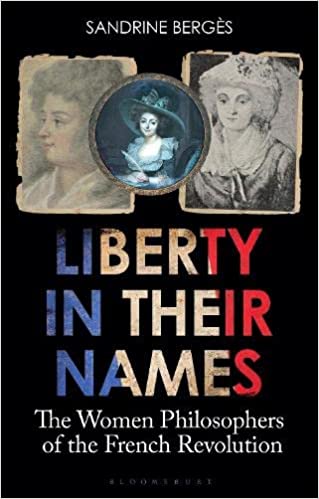

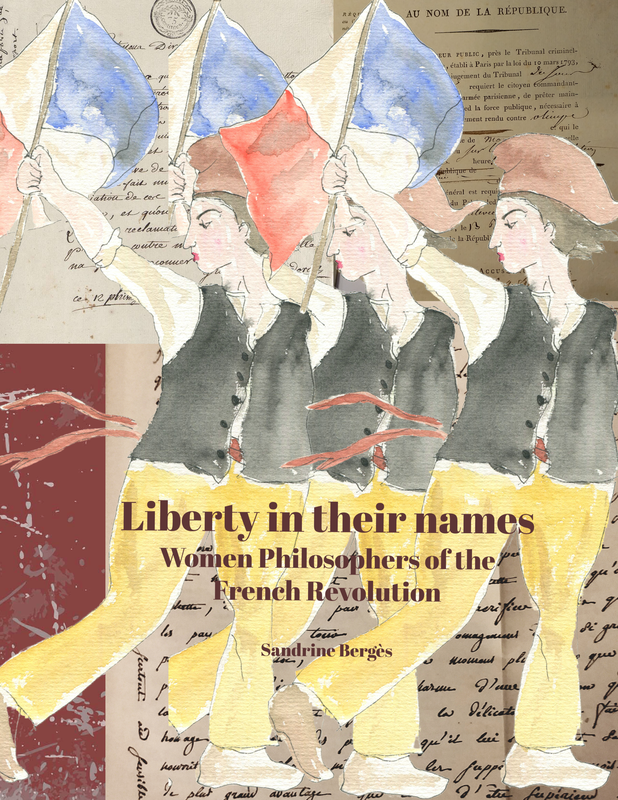
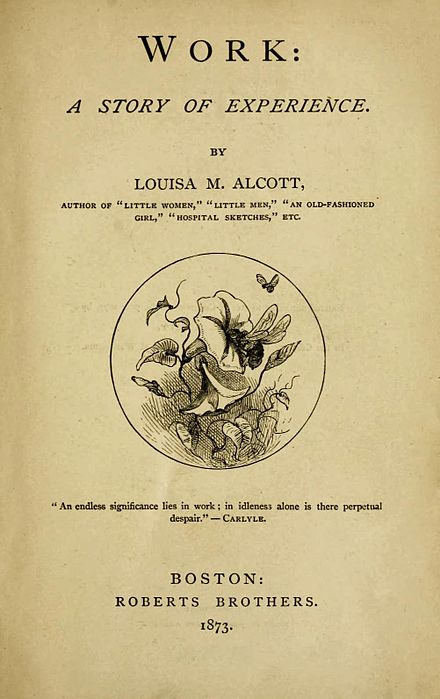
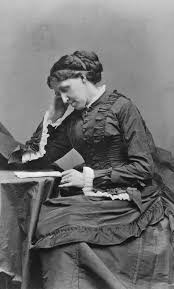

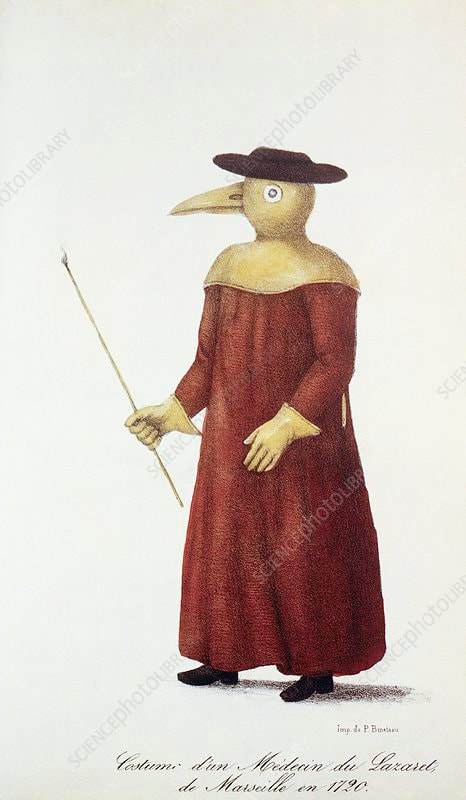
 RSS Feed
RSS Feed